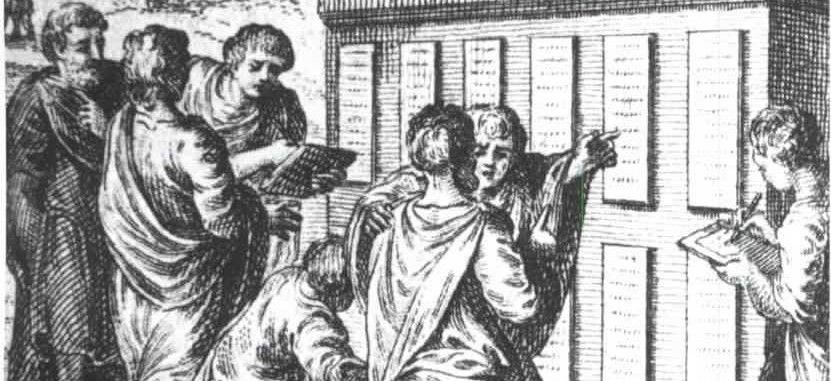Why "Twelve Tables"?

History:
The "Twelve Tables" were a series of laws developed in Rome ~450BC and then published and made available to both patricians (upper class) and plebeians (working class). While the laws were imperfect, their generation and publication significantly increased transparency and consistency of Roman law.
From OxfordReference:
"Acc. to Roman tradition, popular pressure led to the appointment for 451 bc of ten men with consular imperium, for writing down statutes, in order to put an end to the patrician and priestly monopoly of the law... The fundamental consequence was that customary law was now enacted by statute and given legislative basis; and the Twelve Tables were seen as the starting‐point of the development of Roman law."
Impact:
While scholars debate the extent of the Twelve Tables' influence in Rome, there appears to be consensus that it was foundational in establishing and codifying Roman law. It is also alleged (I found lots of claims online but few true sources) that James Madison was heavily impacted by the Twelve Tables and that the US Bill of Rights was generated to fill some of the same role in the US that it did in Rome.
Inspiration:
To me, and as the inspiration for this blog name, the Twelve Tables embody three virtues that will advocate for here:
- Active improvement, not aspirational perfection
- Transparency, not just 'empowerment'
- Equality under the law
Improvement:
These essays, posts, and newsletters are going to fall far short of perfection. But they are going to be thought-out analysis or synthesis of real problems today, seeking practical improvement.
The Twelve Tables were not perfect laws--in fact, some of them were vile--but they were a true improvement over the previous state of law at that time.
We (people in general) have a weakness for prizing perfection over improvement. This results in paralysis and inaction. Voltaire cleanly expressed this in his "the best is the enemy of the good" quote, and others throughout history have made a slew of similar pithy statements.
Actions that are imperfect but truly improve the current situation do far more good than 'perfect' solutions that remain aspirational.
One of my favorite Opinion articles (Ok, possibly the only Opinion piece I have ever truly enjoyed) addresses this in talking about the value of mediocrity, and running for fun rather than to train for a half-marathon.
Transparency:
Many of these blog posts are going to harp on transparency issues. Americans are exceptionally lucky to have the rights and power that we do, and we need greater transparency to use that power effectively and justly; not more nominal power without data.
It seems as if American society is obsessed with power, but afraid of responsibility. On both 'The Right' and 'The Left', domestic politics are focused on empowerment and ensuring that one's preferred snippets of statutory or case law are enhanced.
The Twelve Tables was not groundbreaking in "empowering" the plebeians, or even in granting them any specific political rights. But it was groundbreaking in providing transparency through publicly displaying simply written laws that paved the way for major social change.
Americans have been blessed with extensive rights and significant political power--what we need is greater transparency. Corporations often talk about giving more control to users, or empowering users, but write privacy policies that are too extensive to actually read. The US Government admirably requires Plain Language, but still needs greater transparency in surveillance and intelligence.
Equality Under the Law:
I'll address some key elements of injustice here. Partly because injustice will rot a society and it must be addressed, and partly because I find injustice especially distasteful and this is my blog after all. Of course I'll leave many unaddressed because of sheer quantity, and I'll leave others untouched because of their radioactive nature or great political sensitivity.
Legal equality is critical for a just and functional society. The wealthy and influential are not subject to laws in the same way that the poor or uninfluential are. I thought about including reference links here, but honestly, everyone agrees that this is a problem.
Again, the laws in the Twelve Tables aren't great examples of democracy and accountability by today's standards, but generating for the first time a set of written laws that everyone in Rome was held accountable to was excellent.
I hope you enjoy reading these blog entries and get value from them. Reach out to me at TwelveTablesBlog [at] protonmail.com with your thoughts on these essays, or your topics of interest. If they are similarly interesting to me, I may write on them!
Main blog cover photo by Jan Zhukov on Unsplash